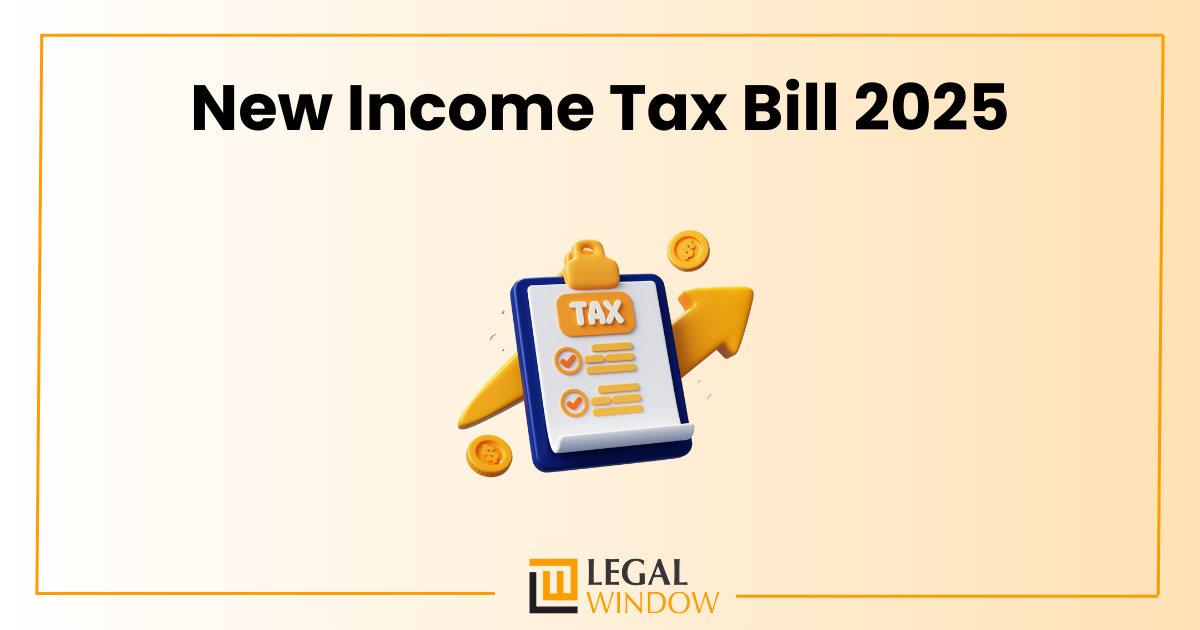The Income Tax Bill, 2025, was introduced in the Lok Sabha on 13 February 2025. It tries to replace the Income Tax Act, 1961. This bill retains most of the provisions of the 1961 Act. It aims to simplify the language primarily and eliminate unnecessary provisions. Regimes and tax rates are unchanged for individuals and corporations. Most definitions have also been retained. The proposed commencement date of the new bill is April 1, 2026.
Objective of the New Income Tax Bill 2025
In the budget speech of 2024, Finance Minister Nirmala Sitarman revealed the government's intentions to investigate the Income Tax Act, 1961 in the totality. Through this investigation, the Act was to be further brief so that taxpayers could read and understand it.
The primary objective mentioned by the minister is to reduce disputes and cases associated with the tax system. The government will thus increase tax certainty with the promise of offering clarity and ease of compliance for taxpayers.
After the announcement, the Income Tax Department started a public counselling process, where taxpayers can propose changes that they want to see in the new law. The move showed a more inclusive approach to the government's interest and tax improvement in public input.
Benefits of the New Income Tax Bill 2025
- Low complexity: The new Income Tax Act is expected to simplify the tax structure by reducing the number of deductions and rebates available to taxpayers.
- Increase in compliance: This will streamline the tax laws and reduce legal ambiguities.
- Liberal Tax Rates: The Act provides for a relief structure that saves more money in the taxpayer's hands.
- Decreased legal disputes: Simplification of tax laws is expected to significantly reduce the burden of litigation for individuals and businesses.
Features of New Income Tax Bill 2025
Returns filing, TCS on LRS
The first draft of the bill introduced in February included a provision clause 263 (1) (A) (ix), which states that taxpayers can only make a refund claim on filing of tax return on or before the due date. This new bill has removed this provision. The new bill also clarified that NIL TCS would be applicable on the liberal remittance scheme (LRS) consideration funded by a financial institution for educational purposes.
Corporate taxpayers
Bill has corrected other draft errors, such as inter-corporate dividend cuts for companies availing concessional tax rates. Alternative minimum tax (AMT) for limited liability partnership is aligned with the existing provisions of the IT Act, removing the extended range that will include LLPs that do not claim specific tax benefits and attract a high rate of 18.5 percent against a preferential rate of 12.5 percent.
Additionally, the bill has been enacted to remove ambiguities related to transfer provisions, as well as along with changes related to the carry-forward and disadvantage. The reference of the beneficial owner has been left to align with Section 79 of the Income Tax Act, 1961, as well as with an explanation of the 30% standard deduction after the municipal tax, calculating the house income.
The government has corrected the discrepancy about donations associated with non-profit organizations as per the recommendation of the selection committee. The exemption has been allowed NPO for 5 percent of 'total' donations instead of only 5 percent of 'anonymous' donations, as is the case in the current Act.
Tax year, digital discoveries
The new bill introduces the concept of "tax year", which is defined as 12 months starting from 1 April. This concept was introduced in the first draft in February. The new bill removes redundant provisions and obsolete language, and reduces the number of classes in the Income Tax Act of 1961, and the number of chapters is reduced from 47 to 23. The number of sections in the new income tax bill has come down from 819 to 536.
However, the government has maintained the controversial definition of "virtual digital space" - the income tax authorities have the power to call for information such as email servers, social media accounts, online investment, trading and banking accounts, remote or cloud server and digital application platforms during search & seizures.
Taxation Law (Amendment) bill
The Taxation Act (Amendment) Bill, 2025 is also introduced by the Government amending the Finance Act, 2025. This has exempted income from dividends, interest, long -term capital gains or other income, which is made by investments made by the State Public Investment Fund of Saudi Arabia.
The Taxation Laws (Amendment) Bill has extended the income tax exemptions previously available under the market-linked National Pension System (NPS) to the guaranteed Unified Pension Scheme (UPS). It allows retirees to withdraw up to 60% of their accumulated UPS corpus tax-free at the time of retirement.
Major Changes introduced in New Income Tax Bill 2025
Schemes making power: The Act has provided for the faceless collection of assessment of information and tax matters. The bill retains these provisions. It wants to empower the central government to frame new schemes for more efficiency, transparency and accountability. This can be done by:
- Eliminating the interface with the assessee through technology and
- to adapt resource usage through the scale and economies of functional expertise. The schemes prepared by the central government should be placed before Parliament.
Undisclosed Income: Under the Act, unknown income is defined to include money, bullion, jewellery or other valuable articles to assess search cases extending to include virtual digital assets. Any code, number, or tokens are produced in them, which produces cryptographic and provides digital representation of the Value Exchange.
Dispute resolution panel: The Act allows some qualified evaluators to refer to the draft orders passed by assessing officers for a dispute resolution panel. These evaluators include transfer pricing cases, non-residents, or individuals engaged in foreign companies. Transfer pricing refers to the value charged in transactions between respective institutions of a multinational enterprise. The panel may issue instructions to guide the completion of the evaluation. The bill retains these provisions and connects that the panel should issue instructions with the reasons for the points of determination and the decision to reach the decision.
Tax treaties Interpretation: Allows the Government of India to enter into agreements with other countries for relief in double taxation. It specifies that if the word used in such agreements is neither defined in the agreement nor in the Act, it will be notified by the Central Government. The bill retains these provisions and states that if a word in the treaty is not defined by the Treaty, Act, or a notification by the Central Government, it will be assigned to another central law.
Conclusion
Most provisions and rules under the Income Tax Act, 2025 remain largely unchanged, with modifications primarily involving the renumbering of sections and the removal of certain explanations and provisos. All amendments proposed in the Union Budget 2025 have been duly incorporated into the Act. The scope of income, criteria for determining residential status, tax slab rates, capital gains provisions, and other applicable limits and rates either remain the same or have been revised in line with the Budget announcements.
LegalWindow.in is a professional technology driven platform of multidisciplined experts like CA/CS/Lawyers spanning with an aim to provide concrete solution to individuals, start-ups and other business organisation by maximising their growth at an affordable cost. Our team offers expertise solutions in various fields that include Corporate Laws, Direct Taxations, GST Matters, IP Registrations and other Legal Affairs.
Categories
- Agreement Drafting (23)
- Annual Compliance (13)
- Change in Business (37)
- Company Law (150)
- Compliance (90)
- Digital Banking (3)
- Drug License (4)
- FEMA (17)
- Finance Company (42)
- Foreign Taxation (9)
- FSSAI License/Registration (15)
- GST (124)
- Hallmark Registration (1)
- Income Tax (214)
- Latest News (36)
- Miscellaneous (170)
- NBFC Registration (8)
- NGO (18)
- SEBI Registration (6)
- Section 8 Company (10)
- Start and manage a business (27)
- Startup/ Registration (134)
- Trademark Registration/IPR (48)
Recent Posts
- Major Upgrade: Breaking Down GST 2.0 September 15, 2025
- New Income Tax Bill 2025 August 27, 2025
- ITR-3 Form Explained: Who Should File & Step-by-Step E-Filing Guide (FY 2024-25) June 25, 2025
All Website Tags
About us
LegalWindow.in is a professional technology driven platform of multidisciplined experts like CA/CS/Lawyers spanning with an aim to provide concrete solution to individuals, start-ups and other business organisation by maximising their growth at an affordable cost.









